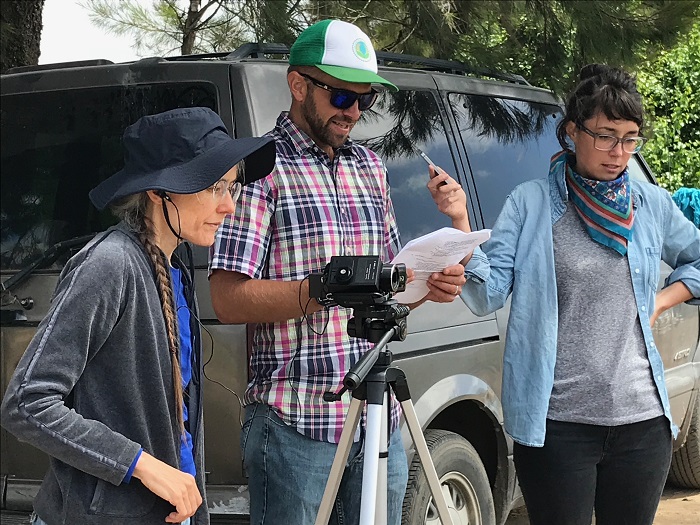The Organic Farming Research Foundation (OFRF) is offering an online training program covering a variety of topics related to organic production as part of its educational outreach goals. The first module in the series was released last month and focuses on organic soil health management.
“This training module will be freely available to anyone who wants to access it and look through the information we have there,” said Lauren Snyder, OFRF education and research program manager, “This is one way that we provide educational resources to organic farmers, in this case we’re focused on organic specialty crop farmers in California.”
 OFRF Education and Research Program Manager, Lauren Snyder
OFRF Education and Research Program Manager, Lauren Snyder
The learning modules are described as being all inclusive, but are particularly designed for beginning farmers, whether it be those looking to get into farming for the first time or those interested in transitioning from conventional production. The second module in the series will highlight the various aspects of weed management in organic systems. Some of the lessons in the module will overlap with the information presented in the soil health module such as conservation tillage practices.
“Those two modules I think will go together really nicely. Then we’ll be following that with an irrigation and sustainable water management module,” Snyder said. “The other three will be on organic insect and mite pest management, and then another on disease management and then finally we’ll have one on economics and marketing.”
 Richard Smith (middle) from UC Cooperative Extension explaining how to diagnose crop diseases in the field. Also pictured are Kati Greaney, OFRF videographer (left), and Vicki Lowell, Communications Manager at OFRF (right).
Richard Smith (middle) from UC Cooperative Extension explaining how to diagnose crop diseases in the field. Also pictured are Kati Greaney, OFRF videographer (left), and Vicki Lowell, Communications Manager at OFRF (right).
The educational project is being funded by the California Department of Agriculture through its Specialty Crop Block Grant program. The goal behind the training program is to offer information for farmers in a single location that is both scientifically vetted and applicable.
“Since we’re trying to make it geared toward California, we’re really trying to tap into research that has been done through the UC system and through extension research. But we do have a few examples that are a bit broader outside of California as well,” said Snyder.
 Pictured from left to right: Sonja Brodt, content manager at UC SAREP; Nathan Harkleroad, Education Program Director at Agriculture and Land-Based Training Association; Sara Riegler, graduate student at UC Davis who developed course content for the soil health module.
Pictured from left to right: Sonja Brodt, content manager at UC SAREP; Nathan Harkleroad, Education Program Director at Agriculture and Land-Based Training Association; Sara Riegler, graduate student at UC Davis who developed course content for the soil health module.
OFRF has partnered with the University of California Sustainable Agriculture Research (UC SAREP) and Education Program, and California Polytechnic State University in San Luis Obispo to provide the research support for the online training tool. The modules will be released one at a time, with all six of the educational modules scheduled to be available by Spring of 2020. As the modules are released, users are encouraged to leave feedback to help the program evolve and become even more useful.
“We view this training program as a living resource and encourage users to provide their feedback by completing the voluntary surveys in the learning modules,” adds Snyder. “This information will increase the utility of the program and ensure we are meeting the needs of organic specialty crop farmers in California.”
The online training program is one of many educational initiatives that OFRF provides to help promote the adoption of organic farming practices. Based in Santa Cruz, OFRF works to advance the organic sector on a national scale through research and grant support, as well as through various outreach activities.
“It’s important to have those resources and support because organic farming relies a lot on these agriecological approaches that can be very knowledge intensive,” Snyder noted. “It’s not as straight forward as just applying different inputs into the system. You really have to understand how the different crop species you’re growing work together and interact.”






